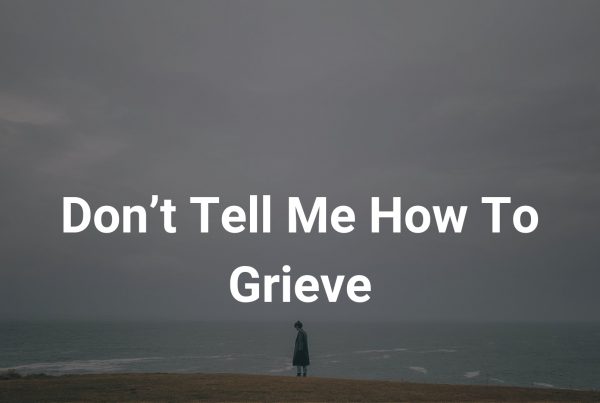Authors: Dr. Abbie Maroño
Published: July 15, 2024
We’ve all heard the saying, “Love conquers all,” but what if your only encounters with love have ended in abandonment? What if the very notion of loving and being loved becomes so intertwined with the fear of being left behind that shutting out love feels like the safer choice? This profound fear of abandonment can lead to a rejection of social connections, creating a protective barrier against potential heartache.
Living in such a state of constant fear and isolation can be incredibly detrimental to our emotional and mental health. It can prevent us from forming meaningful relationships, hinder our personal growth, and ultimately, leave us feeling lonely and disconnected.
But before we dive too deep into that, it’s crucial to understand why our social relationships are so important.
A Social Species
Human beings are inherently social creatures, wired to seek the safety and connection of close relationships. Decades of research consistently reaffirm that the longing to belong to social groups is a fundamental aspect of the human experience. Moreover, research has consistently shown that strong social ties are associated with better physical health outcomes. Socially connected individuals tend to have lower rates of chronic diseases, faster recovery times from illness or surgery, and longer lifespans. Strong social support networks are also linked to lower rates of depression, anxiety, and other mental health disorders. Indeed, it has been extensively shown that feeling connected to others and being accepted for who we are contributes to feelings of fulfillment and purpose in life.
However, despite this inherent desire for connection, many of us have experienced disappointment or betrayal in relationships, with some enduring more than others.
When those expected to nurture and care for us instead abandon us, particularly in our time of need, it can leave us longing for social connection while simultaneously fearing rejection. This fear may lead us to reject attempts by others to connect with us, as we anticipate they too will eventually leave.
Nature Vs. A Lack Of Nurturing
For individuals who have experienced neglect from a primary caregiver, especially when that caregiver is their mother, the lesson learned early on is that their basic needs may not be reliably met. Similarly, children who have lost a parent, whether through choice or circumstances, internalize the painful lesson that people can leave and may not return. This realization may also come later in life for some individuals, perhaps through experiences of betrayal in friendships or romantic relationships. For those who have endured infidelity from a partner, the belief that relationships meant to provide safety and support can instead lead to pain and abandonment becomes deeply ingrained.
While the specific circumstances may vary, the subsequent outcome can manifest as a psychological expectation that one’s needs will not be fulfilled and that those who offer love and comfort will ultimately leave. As such, this can lead to an internal struggle between their hardwired need for social connectedness, and their learned experience of disappointment and abandonment. In this mental tug-of-war, the fear of abandonment often emerges as the dominant force, overpowering the innate desire for connection.
Behavioral Manifestations
Given the insights from our discussions above, and what we covered in the “Understanding self-sabotage” blog, it’s evident that fear of abandonment can often trigger self-sabotaging behaviors within relationships. These behaviors can take various forms, such as creating conflict, distancing oneself from others, or deliberately undermining the relationship to preemptively avoid the pain of rejection or abandonment.
However, fear of abandonment isn’t limited to these destructive patterns alone. It can also manifest as overdependence or clinginess, where individuals become excessively reliant on their partner for validation, reassurance, and emotional support. This fear of any perceived distance leading to abandonment drives them to seek constant closeness and validation from their partner.
Additionally, some individuals may exhibit jealousy and possessiveness in relationships as a means of exerting control and preventing their partner from leaving. This behavior stems from a deep-seated fear of abandonment and a desire to maintain a sense of security and control within the relationship.
Furthermore, fear of abandonment can lead to hyperindependence—a coping mechanism aimed at avoiding the pain and vulnerability associated with relying on others. This hyperindependence often results in a mistrust of others and a reluctance to accept help or support from them. Even when support is offered, individuals may struggle to accept it, viewing it as a sign of weakness or vulnerability, and may instead reject assistance to maintain their perceived self-reliance. For instance, individuals may express sentiments such as:
“I’ve learned to take care of myself because nobody else was there for me.”
“I’ve managed on my own for this long, why would I need anyone now?”
“What’s the point of seeking help when nobody cares anyway?”
“He’s just going to leave like everyone else does.”
These statements reflect the deep-seated fears and beliefs associated with abandonment, driving individuals to adopt self-protective behaviors that ultimately hinder their ability to form healthy and fulfilling relationships.
Building Healthy Expectations
To foster healthier relationship expectations, it’s crucial to cultivate a healthier relationship with oneself. While we cannot control how others treat us, we have agency over how we respond to their behavior. While this reality may not offer immediate reassurance, it serves as a poignant reminder that the relationship we cultivate with ourselves forms the foundation of all other relationships.
If we fail to treat ourselves with kindness and respect, we inadvertently set the precedent for accepting subpar treatment from others. Therefore, it’s imperative to prioritize self-care and self-respect, refusing to settle for anything less from others. This self-respect serves a dual purpose: firstly, it safeguards us from entering negative relationships merely to avoid solitude, and secondly, it provides us with resilience to bounce back should we face rejection or abandonment. Thus, nurturing stronger self-esteem becomes paramount. Indeed, empirical research demonstrates that individuals with higher levels of self-esteem and self-worth are less susceptible to fears of abandonment. Engaging in activities that promote self-care, self-expression, and self-compassion can serve as powerful tools for bolstering self-esteem and cultivating a more secure sense of self.
It’s essential to remind ourselves that we are inherently worthy of love and commitment. Despite past experiences of mistreatment in relationships, we deserve genuine love and respect. By embracing this truth and investing in our own well-being, we empower ourselves to cultivate healthier, more fulfilling relationships built on mutual respect and reciprocity.





